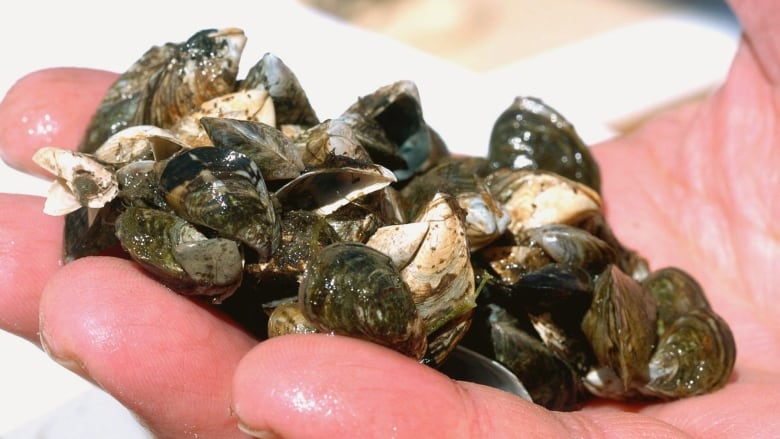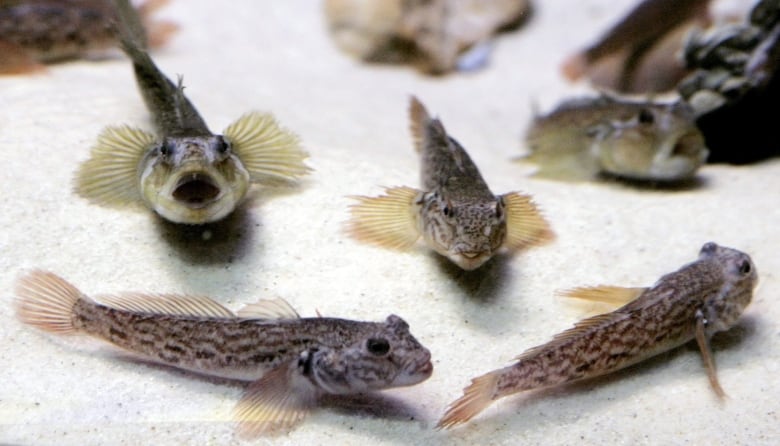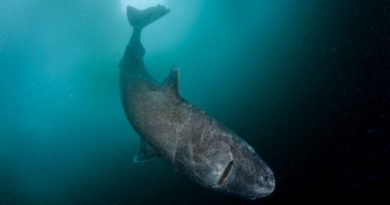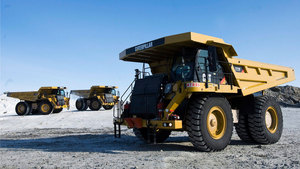Invasive species: Fisheries and Oceans Canada has no mandate in Arctic, audit finds

The Department of Fisheries and Oceans Canada’s main program to handle invasive species does not have a mandate in the Arctic, a recent audit noted — and one advocate says that could leave vulnerable Arctic ecosystems at risk.
The Commissioner of the Environment and Sustainable Development to the Parliament of Canada released its audit of how Fisheries and Oceans Canada handles invasive aquatic species last week, alongside an assessment critical of the federal government’s failure to adequately act on climate change.
Invasive aquatic species include fish, plants and other organisms not native to an ecosystem. Those species can be destructive for native species in that they compete for food and can carry disease.
The invasive species audit found the Department of Fisheries and Oceans (DFO) and Canada Border Services Agency have not taken the steps they said they would to prevent invasive aquatic species from entering Canada’s waters.
“Fisheries and Oceans Canada had not determined which species and pathways posed the greatest threats to Canada’s environment and economy and to human health and activities, and it had not determined which species were the most important to regulate,” the audit said.
The audit found shortcomings in training and equipping fishery officers, and an unclear breakdown of responsibilities between DFO and territorial and provincial governments. It also found that when threats did become known, the DFO was “slow” to respond.

Little monitoring in the North
The audit focused on DFO actions in southern waters, where there are already several known invasions — such as zebra mussels and green crab — that need to be dealt with.
But the report’s principal, Kimberley Leach, also told CBC North that “we did find that there wasn’t a lot of activity in the North.”
“They aren’t doing the job in the rest of the regions,” said Leach, who led the invasive species audit, adding that the department’s resources are stretched. “It’s not surprising to us, I guess, that there’s little going on in the Arctic right now because there’s actually not a lot going on in many other parts of Canada as well.”
Leach said her team heard from DFO officials that the main program to handle invasive species did not have a mandate in Canada’s North because there have yet to be any significant invasions through Arctic waters.
However, she said, “everybody also recognizes that the risk of damage from any species invasion in the North is very high due to the vulnerability of ecosystems there … one official told us that they’re very concerned about the risk.”
Arctic at risk?
That’s a risk that Dan Kraus, with the Nature Conservancy of Canada, believes is growing. He says the Arctic is seeing increased shipping due to climate change. Warmer waters can also make Arctic seas friendlier to new species.

“As those waters warm and ports are open more often we know that we’re going to see more shipping, both commercial shipping but also tourism as well,” he said. “And those are all potential sources of bringing invasive species into some of those … waters.”
Leach noted that the Department of Fisheries and Oceans has community monitoring programs for invasive marine species in the Arctic, funded through the department’s science programming, and that there “would be the possibility of things expanding there in the future” if a particular species posed a threat.
The auditors said the main problem is that without a consistent system, it’s hard to know if DFO is focusing on the right threats.
The department responded to the audit, saying they plan to develop a more systematic approach and a national response strategy, but adding that they were underfunded in 2017 and would have to make risk-based decisions on where to focus.
The department said it did not have time for an interview on Wednesday due to spokesperson scheduling but that it would provide information later by email.
Related stories from around the North:
Canada: Canada announces investments to tackle illegal fishing and discarded fishing gear, Radio Canada International
Finland: River ice and white hares: Finnish scientists study signs of climate change in nature, Yle News
Norway: Will Russia ask Norway to cut crab fishing in Arctic fjord?, The Independent Barents Observer
Russia: Snow crabs invading Russia’s Arctic nuclear waste dump, The Independent Barents Observer
Sweden: Environmentalists seek solutions to ghost net problem in Baltic Sea, Radio Sweden
United States: Communities wrestle with shark-bite mystery off Alaskan coast, Eye on the Arctic



